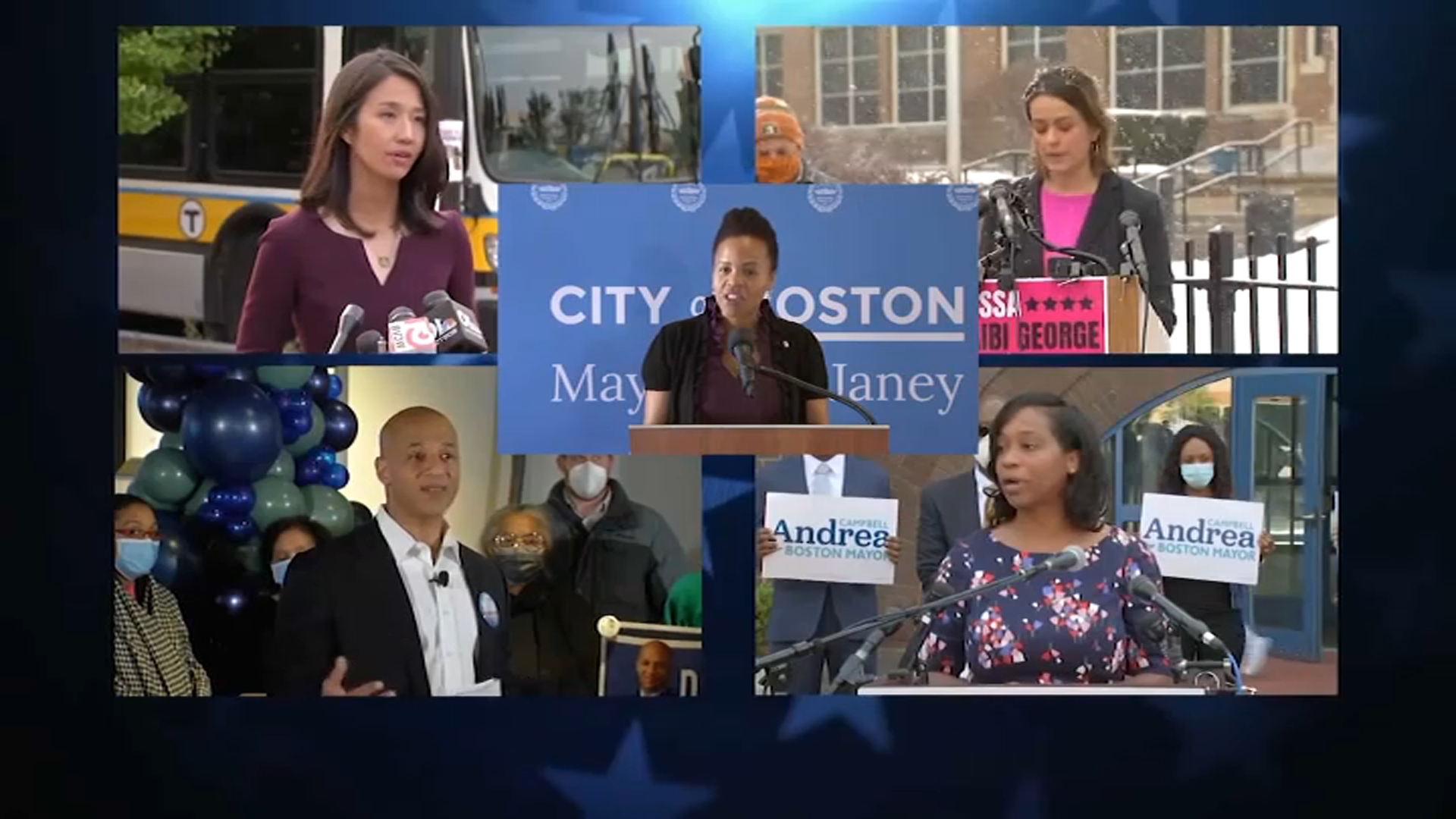
BOSTON – MARCH 25: Mayor Kim Janey speaks at the Medal of Honor Park in Boston on March 25, 2021. Officials recognized the National Medal of Honor Day in advance of the Congressional Medal of Honor Society’s Unprecedented Fourth Convention in Boston in September. (Photo by Erin Clark/The Boston Globe via Getty Images)
Boston Acting Mayor Kim Janey announced Thursday that she is withdrawing the city's Downtown Waterfront District Municipal Harbor Plan, an embattled state-approved planning document that outlines development guidelines along the city’s 42-acre waterfront.
The plan, which the Boston Planning and Development Agency approved in 2017 under then-Mayor Marty Walsh, included development standards for the Harbor Garage site, where a new structure up to 600 feet tall and with 50% of the project site as open space would replace the existing 70-foot high parking garage, and the Hook Wharf site, where the home of the James Hook Lobster Company would be replaced with a structure up to 305 feet tall, with 30% of the lot as open space.
WATCH ANYTIME FOR FREE
Stream NBC10 Boston news for free, 24/7, wherever you are. |
Janey said the decision to re-evaluate Boston's waterfront development comes in the wake of the recent Intergovernmental Panel on Climate Change report indicating that coastal cities are especially vulnerable to the negative impacts of climate change, and as a means to continue addressing racism as a public health crisis.
“We have an opportunity and an obligation to meet this moment of the climate change crisis and protect our waterfront for generations to come,” Janey said. “I look forward to working with local advocates and civic leaders to embed our shared values of resilience, equity, and access into the City’s development process Downtown and throughout all of our neighborhoods.”
Get updates on what's happening in Boston to your inbox. Sign up for our News Headlines newsletter.
More Boston stories
Janey said she has charged her administration with convening stakeholders to determine the future of equitable and resilient development throughout Boston’s waterfront neighborhoods. This group will include environmental justice organizations, residents, and experts in resilient, equitable, and accessible waterfront development.
The goal of the process, she said, is to develop a new approach to waterfront development in Boston that generates community benefits and protection from extreme weather and pollution.
Janey said she wants the waterfront development to include increased waterfront resiliency, expanded access to the waterfront for all residents, Net-Zero requirements for new development, maintained economic vitality during and after the proposed redevelopment and increased green space.
“We must meet the climate crisis with urgent action through maximizing resiliency, equity and accessibility in Boston,” said Mariama White-Hammond, the city's chief of environment, energy and open spaces. “As our City continues to evolve, climate change and racial justice must be at the forefront of our development process. I am grateful to Mayor Janey for leading on this critical movement to ensure Boston’s waterfront is resilient while providing equitable access for all Boston residents.”



